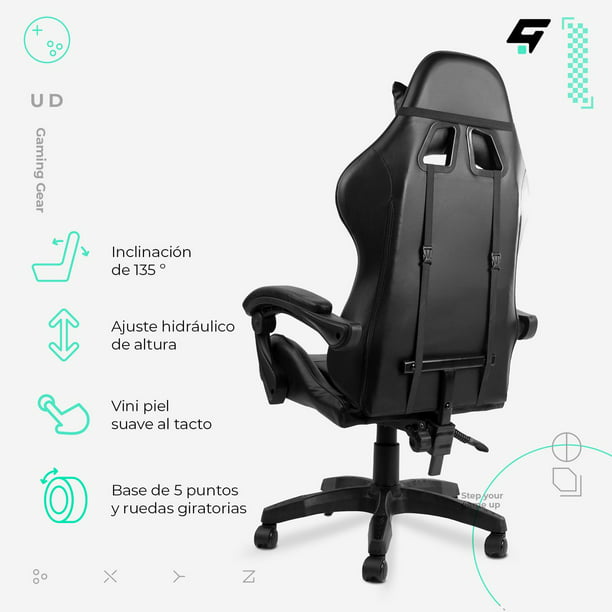
Amazon.com: Deco Gear Endurance Series Deluxe Ergonomic Gaming Chair with Adjustable Head and Lumbar Support, Seat and Armrest Adjustment, 360-Degree Seat Rotation, Plush Neck Support : Home & Kitchen

PC GEAR - ⚡ SILLA GAMER ⚡ MTEK MK02 🔸 ALMOHADA LUMBAR Y CERVICAL 🔸 REPOSABRAZOS AJUSTABLE 🔸 RESPALDERO RECLINABLE 🔸 ALTURA AJUSTABLE PRECIO EN EFECTIVO: 1.330.000 GS. 💸 PRECIO DE LISTA: 1.463.000 GS. 💸 | Facebook

Silla Gamer Ergonómica Urban Design, Reclinable, Cómoda negro Urban Design MSG-YL809 | Walmart en línea

Elg Paraguay - SILLA GAMER GEAR CH18RD 👾👊🏼 ∙ Respaldo de malla de nailon flexible ∙ Inclinación de hasta 135° ∙ Soporta hasta 120Kg. ∙ Reposacabezas para que siempre estés en la

Silla Gamer Ergonómica, Urban Design, Reclinación de 135°, Soporte para Cuello y Columna, varios colores negro Urban Design Silla Gamer Urban Design Reclinación ajustale 135° | Walmart en línea

Hot Sale Ultimate ODM OEM Accept CE Approval Massage Silla Gamer Racing Gaming Gear Chair with Footrest - China Gaming Chair with Footrest, Computer Gaming Chair | Made-in-China.com







![Gear Gamer Omilen V2 - Black / Blue [DG-FC-07-BB-V2] | SoloTodo Gear Gamer Omilen V2 - Black / Blue [DG-FC-07-BB-V2] | SoloTodo](https://media.solotodo.com/media/products/1462760_picture_1632323235.jpg)





![Gear Gamer Düngu - Black/White [DG-GC-13-BW] | SoloTodo Gear Gamer Düngu - Black/White [DG-GC-13-BW] | SoloTodo](https://media.solotodo.com/media/products/1327207_picture_1613576479.jpg)


